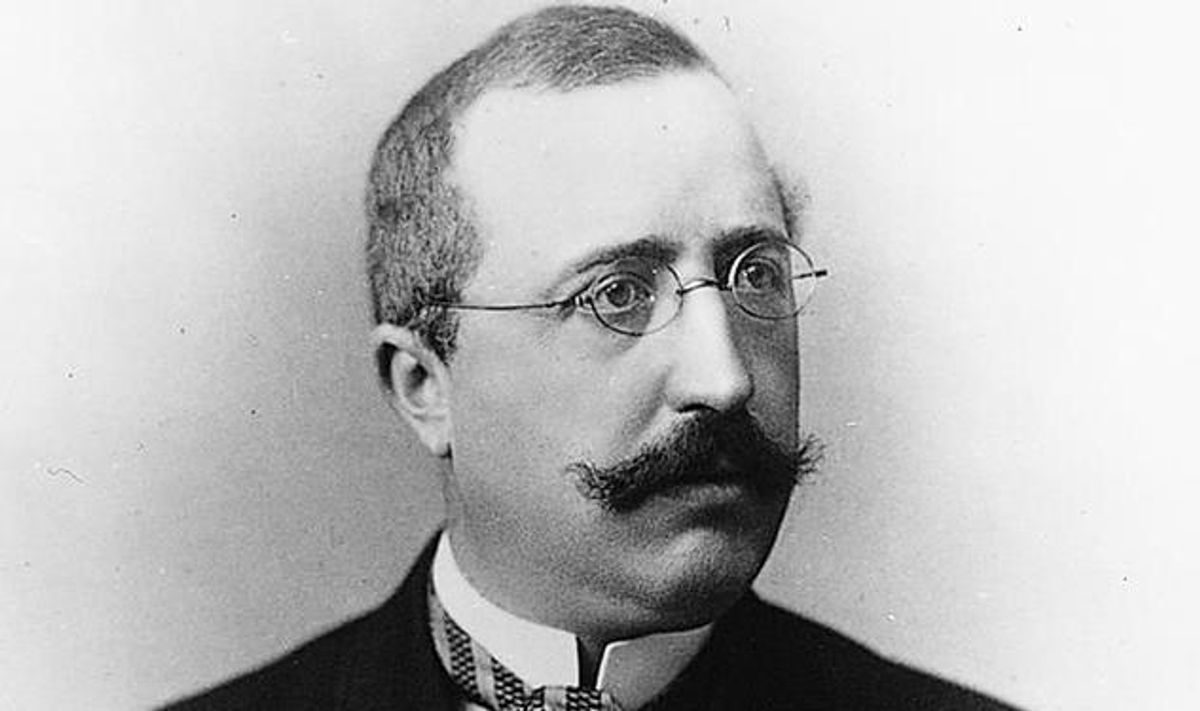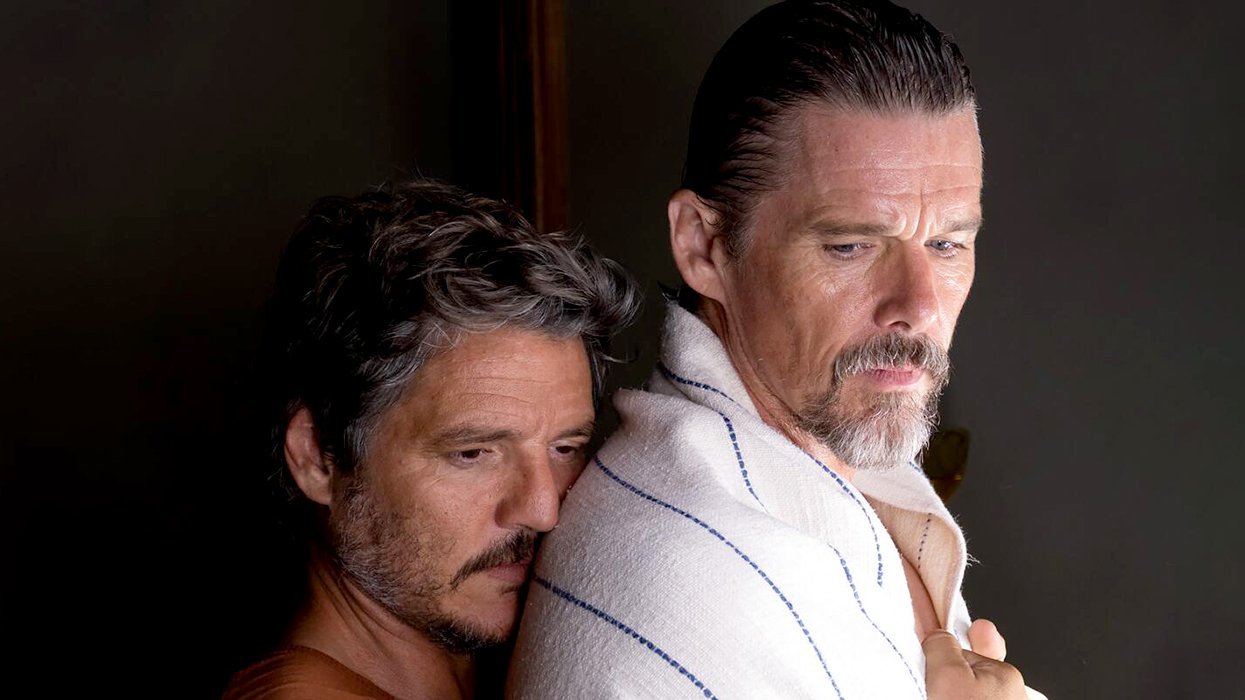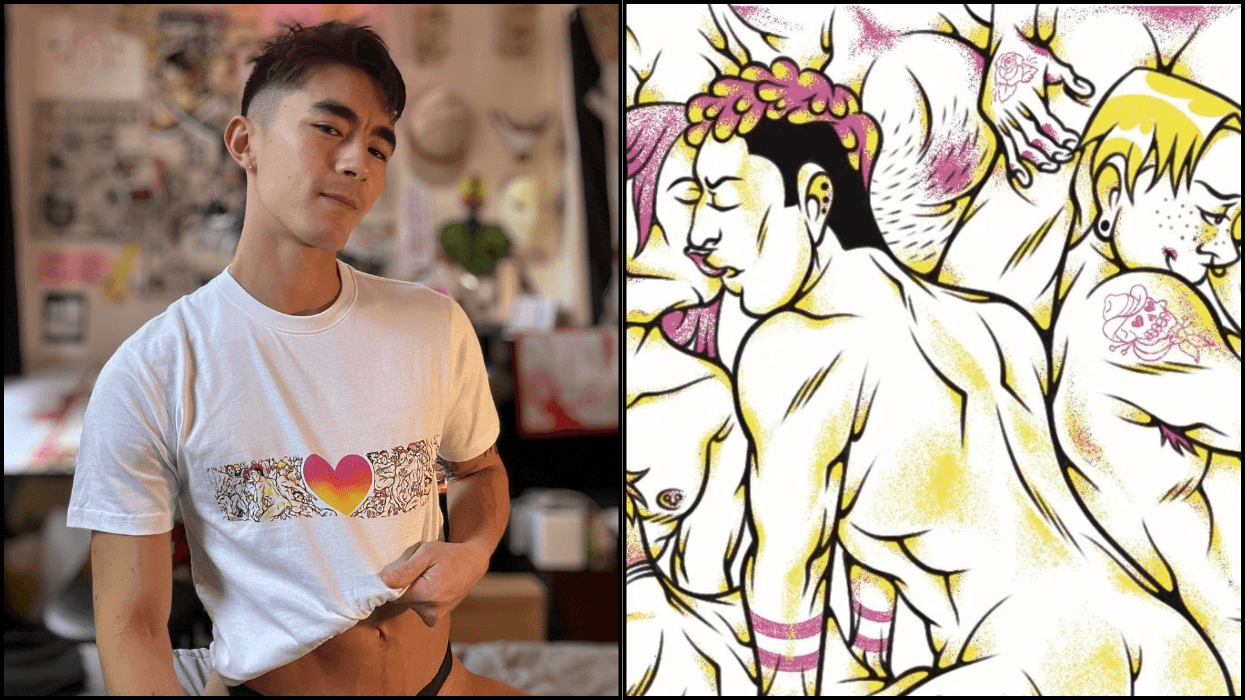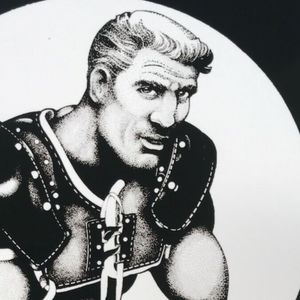This is a sad story that repeats itself all too often. But the fact is it took place at the dawn of the 20th century, not the 21st.
Born February 17, 1854, Friedrich Alfred Krupp was the heir to what was then, and remains, one of Germany's most powerful families, the steel and arms tycoons The Krupps (you may be most familiar with their coffee machines, but it's much larger empire than that). He was the heir apparent and had the best of everything: schools, clothes, homes, vacations, friends. It should have been perfect, except that the junior Krupp lived under his father Alfred Krupp's draconian thumb--and in the closet.
Young Krupp happily joined the family business and unhappily waited for his overbearing father to die, an event he knew would allow him more freedom to pursue his extramarital dalliances. With his father dead, the only person Krupp had to worry about was his wife, Margarethe, and she, like most of German society, looked the other way to avoid seeing Krupp's flagrant affairs.
Finally in 1887, when Friedrich Alfred Krupp was 33, he got his wish: He was the head of the Krupp company and one of the most influential men in the world. He and Kaiser Wilhelm II were thick as thieves, thanks to their fathers's longtime friendships. This friendship, without a doubt, led to what would happen next.
Krupp, an amateur marine biologist, also traveled to Turkey, Italy, and elsewhere to furnish his family's home, Villa Hugel, with antiques, paintings, textiles, and international bric-a-brac. He spent the rest of his leisure time organizing sex orgies with olive-skinned young men. He was notorious around Europe, particularly in the Italian city of Capri, where Krupp began spending most of his time in 1898. For three years, Krupp lived the sexual life he had always desired, but the bacchanal was often at the price of his company's fortunes. He cared not, for he was having the time of his life, but the Italian authorities were quite glum about his gay ways, so in 1901, Krupp was banned from Capri. The heir wasn't fazed, however, he just moved the action to The Bristol Hotel in Berlin.
As Krupp buried his head in sandy boys, Marxist enemies in Italy began leaking well-known rumors about Krupp's orgies to the press. Though rich Krupp stood for everything they hated, he wasn't really the target. It was the Kaiser. Soon, Germany's then-emerging Social Democratic Party, today a ruling party, picked up the gossip and plastered it all over their newspaper, Vorwarts, on November 15, 1902. Though Krupp and his friends in the mainstream press tried to tamp down the story -- Krupp even locked his wife away in a sanitarium, lest she spill the beans -- it was too fast and furious, and the arms heir, convinced he would be ruined like Oscar Wilde had been a few years prior, committed suicide on November 22, 1902.
The Krupp incident is one of the first contemporary tales of outing for political purposes. As Marc E. Vargo writes in Scandal: Infamous Gay Controversies of the Twentieth Century:
"[The Social Democratic Party] sought to expose the homosexuality of Germany's moneyed elite so the populace could behold [their] 'corruption'." Vargo goes on, "In a rather ghoulish reaction, the Social Democratic Party cheered [Krupp's] suicide as a victory by the people." Unsurprisingly, Kaiser Wilhelm II also used the incident for political purposes: he told funeral attendees that Krupp, whom he still believed was straight, was a victim of treasonous Socialists, "men unworthy of the name of German."
Political outings remain alive and well all around the world today, sometimes wielded by the rightwing, sometimes by the left, and very often with results as disastrous as the Krupp affair.


















































































